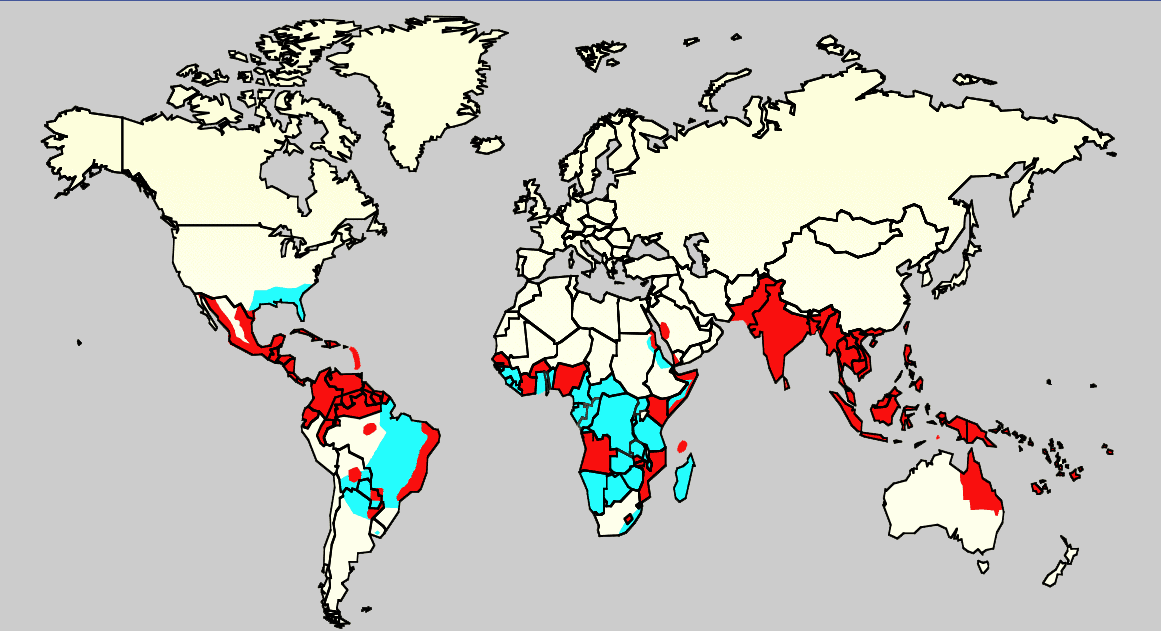What can stop Dengue Fever? Genetically-modified mosquitoes
Meteorologist/Science Writer
Wednesday, August 13, 2014, 9:26 AM - Researchers seeking to end the scourge of dengue fever have a new 'champion' in their corner - genetically-modified mosquitoes, which may finally put an end to this disease, that kills tens of thousands of people every year.
When it comes to potentially-lethal viruses, Ebola may be the heavy-hitter that has our attention right now, but compared to some, it's a relative light-weight. Dengue fever - also known as 'breakbone fever' for the terrible pain it can inflict - is a virus that infects millions of people every year. Most of those infected suffer flu-like symptoms for a week to 10 days and then recover, but roughly 5 per cent develop the much more serious dengue hemorrhagic fever or even dengue shock syndrome. At this stage, the infection has symptoms that can be very similar to Ebola, including the same uncontrolled bleeding as the virus attacks blood cells and inhibits platelets from clotting blood. While that's a low percentage of cases, comparatively, even including this latest and largest outbreak, the WHO says that Ebola has claimed roughly 2,600 lives since it was discovered in 1976. Around 25,000 people - mostly children - die from dengue hemorrhagic fever every year.
 |
| Aedes Aegypti distribution and dengue epidemics as of 2006,
|
The reason for dengue fever's high infection and mortality numbers has to do with how far it has spread. While Ebola is fairly contained in regions of Africa, the mosquitoes that carry dengue have spread around the world, and are currently found in the U.S. Southeast, Mexico, Central America and South America, most of Africa (mainly excluding the desert regions and South Africa), in parts of the Middle East, India, Pakistan and Southeast Asia, and in northeastern Australia.
What scientists at Oxitec, a UK biotechnology company, are doing is attempting to control the spread of the virus by targeting the one particular species of mosquito, out of the 3,000 or so known species, that carries the virus - Aedes Aegypti. They have introduced what they call a 'lethal factor' into the genetic code of the males of this species, which cuts short their lifespan, preventing them from reaching adulthood. If these male mosquitoes are released into the wild, they will breed with females of the species, and any young - male or female - produced by these unions will inherit that same lethal factor. The key here is that it's only the adult female mosquito that feeds on blood. Young mosquitoes and male mosquitoes feed on nectar from plants, like other insects do. Thus, it is only the adult female that spreads dengue fever, so if these pests are prevented from reaching adulthood, their capacity as a disease carrier is removed.
Oxitec has already released batches of genetically-modified mosquitoes into a few countries now, including Brazil, where they succeeded in eradicating all wild mosquitoes in a test area prior to the World Cup Games there this year. To do this under less controlled conditions, it will require multiple releases over time in each area, to ensure there are enough modified male mosquitoes to compete with the wild males. However, while these multiple releases are not expected to reach all wild populations, simply because of the magnitude of the task and potential regulatory blocks in certain countries, they could reach enough to make a big difference in the yearly fatality rate from dengue fever.



